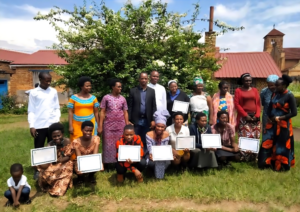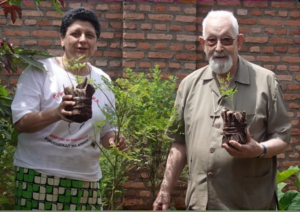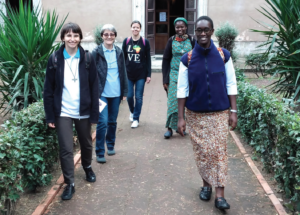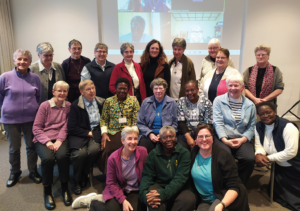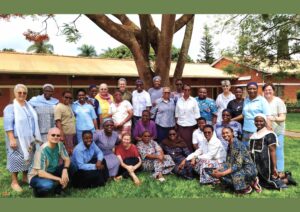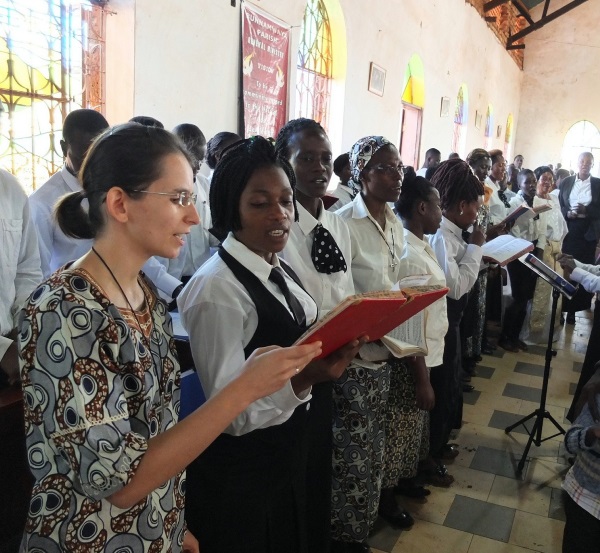 Give thanks in all circumstances – the spirit of gratitude of the Baganda people
Give thanks in all circumstances – the spirit of gratitude of the Baganda people
Rejoice always; pray constantly, give thanks in all circumstances: For this is God’s will for you in Christ Jesus. (1 Thess 5, 16-18)
Hearing these words of Saint Paul on the third Sunday of Advent, I could not help but think with admiration of the Baganda people, among whom I have the grace to live and serve. As soon as I started to learn the local language, luganda and with it, the culture of the milieu, I was struck by that wonderful spirit of gratitude that dominates almost all the conversations in luganda.
First, in any of the greetings we cannot fail to thank for the work done, whatever it is. After we finish eating, we thank the person who prepared the meal and in response we hear: “Thanks for eating!” Because there are those who refuse. When we go to visit someone, we are thankful to have come and to complete the thanks, we can say: “Thank you for being here”. Once the visit is over, of course full of other words of thanks depending on the subject of the conversation, we are thankful for having dedicated our time and in our turn, we thank to be welcomed by our hosts. When I return from school where I work as a teacher, in addition to this simple thank you: “Thank you for the work done” I hear: “Thank you for teaching children! “. After the Mass during which I sing in the choir, I am often thanked for having sung. Have you ever thought once about expressing gratitude to the people who help you pray at church with their songs? To add, the fact that I speak the local language often surprises people who exclaim: “Thank you for loving us! Thank you for learning luganda!” To which I respond politely: “Thank you for appreciating!” What I have just presented are just a few examples of a multitude of thanks we can hear on a daily basis and which show us how the Baganda practice this council of St. Paul: give thanks in all circumstances.
One day, I went to visit an elderly lady “jjajja” (grandmother) called Leticia and I shared with her my admiration for this gratitude that people express at all times. She agreed with me and reminded me of the gospel passage of the ten lepers healed by Jesus where there was only one who came back to give thanks to God. The woman made me understand that in these words of the Gospel, Jesus himself expresses the will to be thanked. In fact, He likes to be thanked so why not give him this pleasure? It also reminds me of Saint Therese of the Child Jesus who said: “What attracts God’s graces most is gratitude, because if we thank him for a blessing, he is touched and we are anxious to make ten others, and if we thank him again with the same enthusiasm, what an incalculable multiplication of graces!”
 Saint Ignatius of Loyola, founder of the Jesuits, recommends having a covenant prayer each evening which begins by giving thanks to the Lord for all the good we received during the day. Can we give thanks to God in all circumstances? Do we see all the moments when the Lord comes to us with his love and graces? In this time when we welcome the Child Jesus, Emmanuel – “God with us”, are we grateful for his presence with us on a daily basis: in the Blessed Sacrament, in the people we meet and in the events, even the smallest?
Saint Ignatius of Loyola, founder of the Jesuits, recommends having a covenant prayer each evening which begins by giving thanks to the Lord for all the good we received during the day. Can we give thanks to God in all circumstances? Do we see all the moments when the Lord comes to us with his love and graces? In this time when we welcome the Child Jesus, Emmanuel – “God with us”, are we grateful for his presence with us on a daily basis: in the Blessed Sacrament, in the people we meet and in the events, even the smallest?
Thanks to the people I live with, I learned to thank in times when I did not see the need to do it. It opened my heart and my eyes to the greatness and goodness of our God. Today I say with the Baganda: “Lord, thank you for becoming one of us, thank you for being born, thank you for being here!”
Sr Magdalena Orczykowska
Read more :


